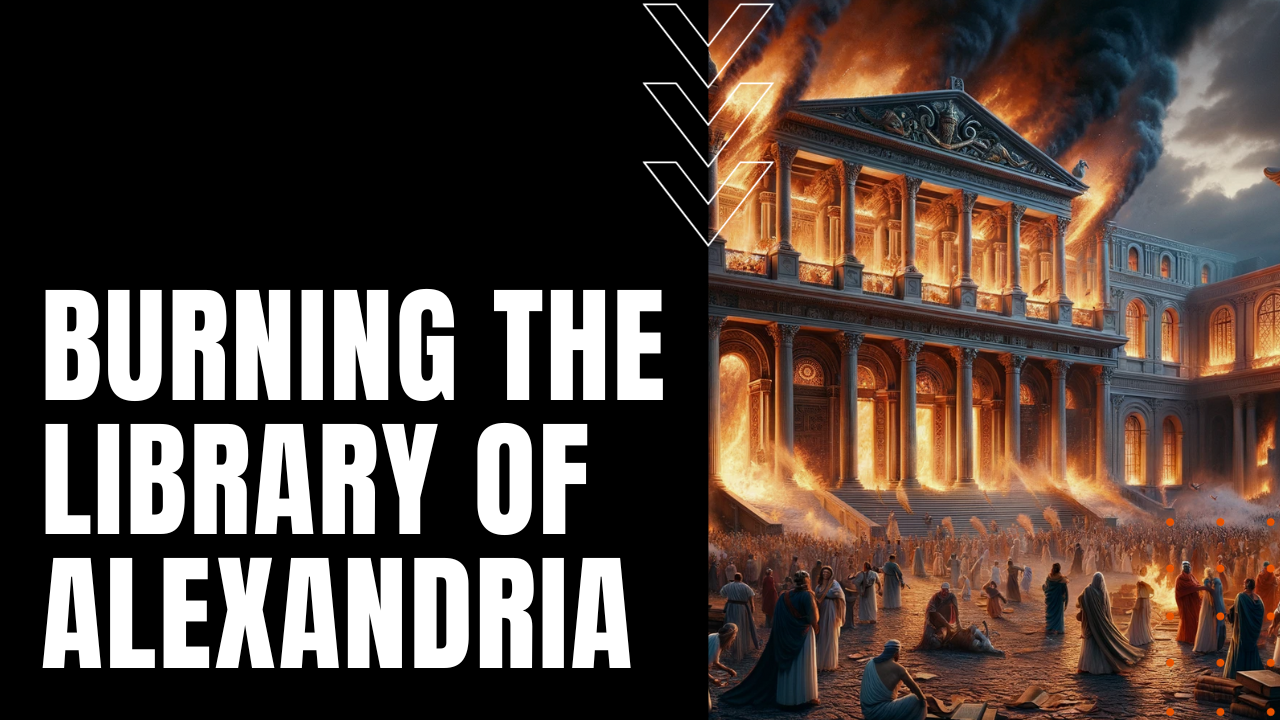Burning the Library of Alexandria

Four centuries before the invention of paper, ancient scholars employed papyrus scrolls for the study of human knowledge, and while most great libraries by the year 295 BC became regional repositories of local heritage and traditions, the library of Alexandria became the first universal library of ancient times, including the entire corpus of Greek literature and the “books of Aristotle,” leading the three reigns of the Ptolemies to scour the earth for scrolls and knowledge that eventually amassed some 700,000 volumes. Despite its 1000-year history as a primary seat of human knowledge, the library of Alexandria is famously or infamously known for its repeated burnings, first by Julius Caesar in 48 BC, when his forces were cut off by an overwhelming fleet of Egyptian boats during his pursuit of Pompey.
An Even Larger Rebuild
According to Plutarch, Caesar ordered the Egyptian fleet burned, which spilled into the city and burned much of the library. Rebuilt even larger than Caesar’s time, with some ten percent of the library’s collection now housed in the Temple of Serapis, a second burning came under the reign of Theophilus, during his rule over Alexandria from 385 to 412 AD. In 391 AD, the Christians of Alexandria destroyed the the library yet again, burning the accumulated knowledge of centuries, which in part ushered in the Dark Ages to come.
Death of Hypatia
They also tortured and murdered Hypatia, the great philosopher librarian of the once great house of knowledge. Rebuilt yet again, the final death knell for the library of Alexandria came in 640 AD, when the city fell to Muslim ruler, Caliph Omar, who proclaimed that the library’s contents either heretically contradicted the Koran or agreed with the Koran, thereby making the collection superfluous to Islam’s most sacred book. According to legend, the contents of the library were used as tinder for Alexandria’s bathhouses, taking a full six months for the library’s collection to be fully destroyed, making the burning of Alexandria’s library, a repeated step backwards into human ignorance.
